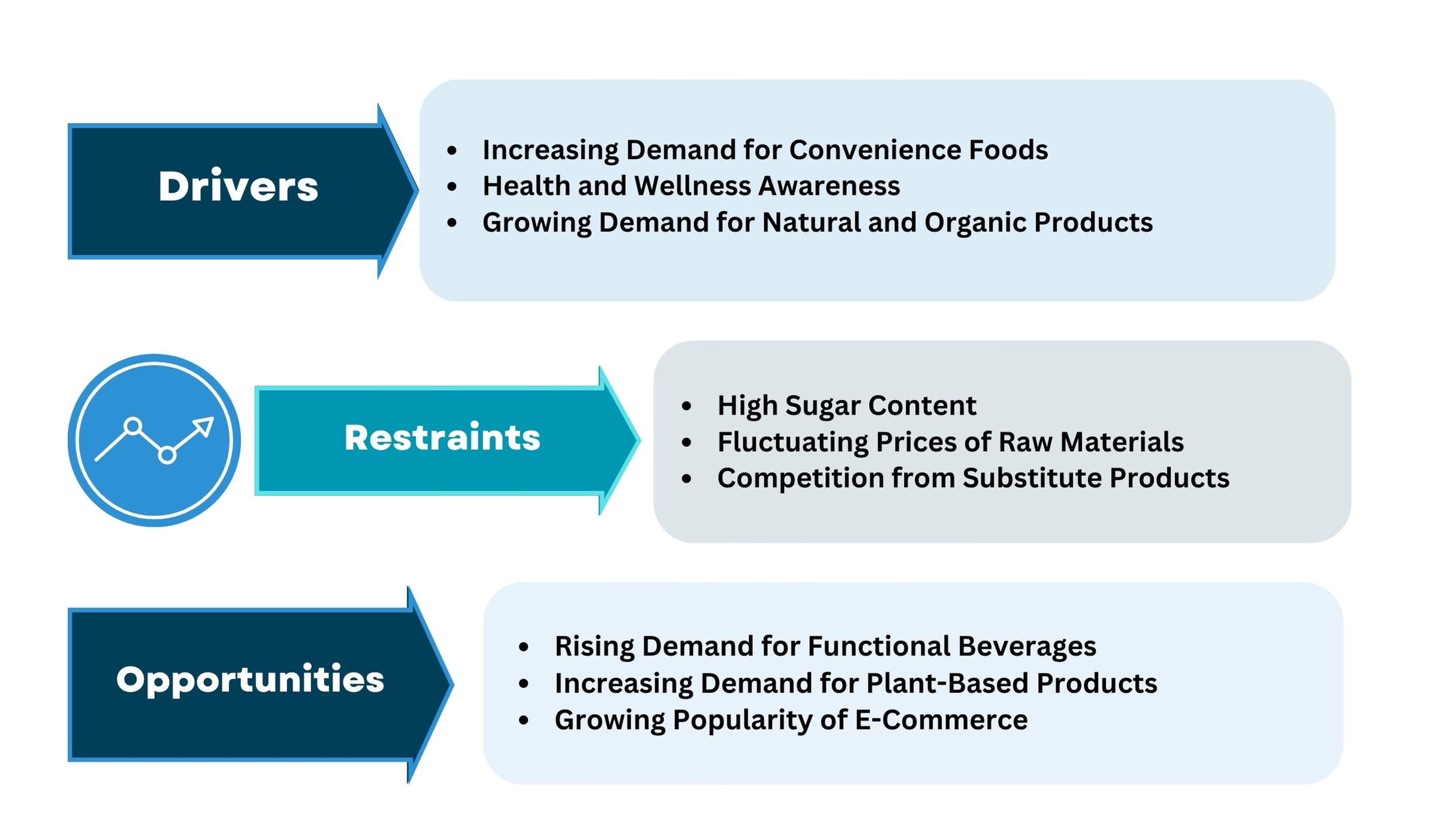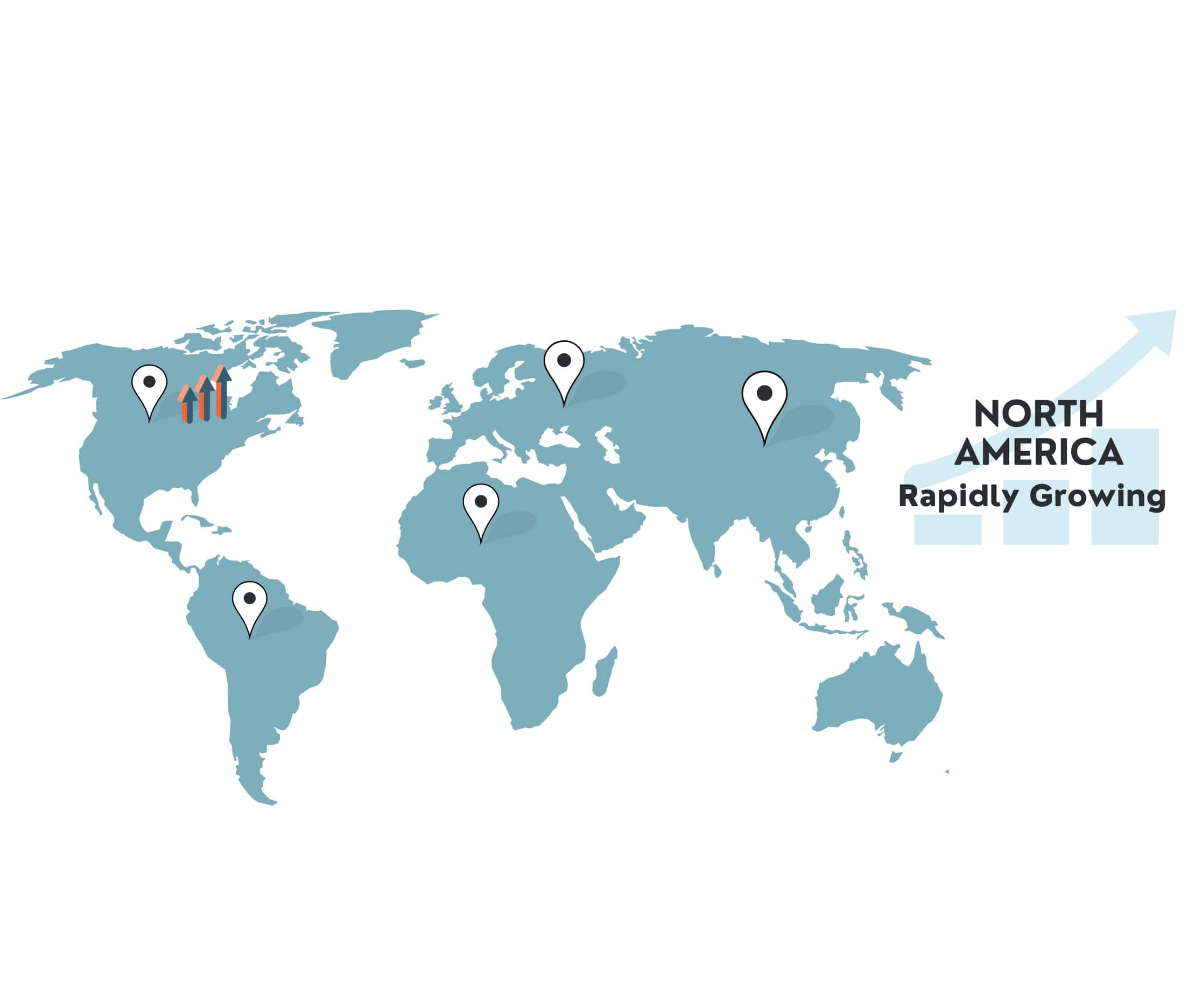Description
The Global Juice Concentrates Market size was valued at USD 78,749.61 million in 2022 and was projected to reach USD 1,16,480.89 million by 2030, growing at a CAGR of 4.8% during the forecast period from 2023 to 2030.
Global Juice Concentrates Market: Overview
Juice concentrates are concentrated forms of fruit or vegetable juices that are used as ingredients in a variety of food and beverage products. They are made by removing the water content from the juice through a process of evaporation or freezing. The resulting concentrate is easier to transport, store, and use and can be reconstituted by adding water before use.
The global juice concentrates market is expected to grow significantly over the coming years, driven by factors such as rising demand for healthier and functional beverages, increasing demand for natural and plant-based products, and the growing popularity of e-commerce platforms. However, the market also faces several challenges, including health concerns related to high sugar content, supply chain disruptions, and intense competition.
North America and Europe are the largest markets for juice concentrates Industry due to the high consumption of processed foods and beverages in these regions. However, the Asia Pacific region is expected to experience significant growth in the coming years, driven by rising consumer awareness of the health benefits of natural and plant-based products, increasing disposable income, and growing demand for convenience foods. The market is highly competitive, with a large number of manufacturers and suppliers operating in the market. Manufacturers are focusing on product innovation, offering organic and non-GMO products, and developing functional and value-added products to differentiate themselves from their competitors. However, the market also faces challenges related to health concerns, supply chain disruptions, and environmental issues, which manufacturers will need to address to remain competitive in the market.
Global Juice Concentrates Market: Covid-19 Impact
- Supply chain disruptions: The pandemic has disrupted supply chains, particularly in regions where juice concentrate production is concentrated, such as Asia and Latin America. Restrictions on travel and transportation have led to delays in shipments and reduced production capacity, leading to supply chain disruptions and higher prices.
- Reduced demand: The pandemic has also led to reduced demand for juice concentrates, particularly in the foodservice sector, as restaurants and cafes have been forced to close or operate at reduced capacity. As a result, juice concentrate producers have had to pivot towards other sales channels, such as online sales and retail, to maintain their revenues.
- Shifts in consumer preferences: The pandemic has also led to shifts in consumer preferences, with an increased focus on health and wellness. This has led to a growing demand for immune-boosting products like orange juice, which has helped to offset some of the decline in demand for other types of juice concentrates.
- Price volatility: The pandemic has led to increased price volatility in the juice concentrate market, as supply chain disruptions and shifts in consumer demand have led to fluctuations in prices. Some producers have had to adjust their pricing strategies to reflect these changes, while others have struggled to maintain profitability.
- Government support: Governments around the world have provided support to the food and beverage industry, including juice concentrate producers, to help mitigate the impact of the pandemic. This support has included financial aid, tax breaks, and other incentives to help businesses stay afloat during this challenging time.
Global Juice Concentrates Market: Drivers

- Increasing Demand for Convenience Foods
- The growing demand for convenience foods and beverages has been a major driving factor for the specific market. It are easy to store, transport, and use, which makes them an ideal choice for busy consumers who are looking for convenient options.
- Health and Wellness Awareness
- The increasing awareness of health and wellness among consumers has led to a shift towards natural and healthier food options, including juice concentrates. Juice concentrates are perceived as a healthier alternative to sugary sodas and other processed beverages, as they are made from natural fruit juices without any added preservatives or artificial sweeteners.
- Growing Demand for Natural and Organic Products
- The global market trend towards natural and organic products has also contributed to the growth of the juice concentrates. Consumers are increasingly looking for products that are free from artificial ingredients, and juice concentrates fit this requirement perfectly.
Global Juice Concentrates Market: Restraints
-
High Sugar Content:
While juice concentrates are marketed as a healthier alternative to sugary sodas and other processed beverages, they often contain high levels of natural fruit sugars. This can be a concern for consumers who are trying to limit their sugar intake and may lead to decreased demand for juice concentrates.
-
Fluctuating Prices of Raw Materials:
The prices of raw materials, such as fruits and vegetables, can be volatile and subject to fluctuations due to various factors, including weather conditions and supply chain disruptions. This can make it difficult for manufacturers to maintain consistent pricing for their products, which may affect their profitability and competitiveness in the market.
-
Competition from Substitute Products:
The market faces competition from a range of substitute products, including fresh fruit juices, carbonated drinks, and other processed beverages. Consumers have a wide range of options to choose from, and the availability of substitute products can impact the demand for juice concentrates.
Global Juice Concentrates Market: Opportunities
-
Rising Demand for Functional Beverages:
The growing demand for functional beverages, such as sports drinks and energy drinks, presents an opportunity for juice concentrate manufacturers to expand their product offerings. By incorporating functional ingredients, such as vitamins, minerals, and antioxidants, into their products, manufacturers can cater to the evolving consumer preferences for healthier and more functional beverages.
-
Increasing Demand for Plant-Based Products:
The increasing trend towards plant-based diets presents an opportunity for juice concentrate manufacturers to position their products as natural and healthy alternatives to processed beverages. As more consumers shift towards plant-based diets, the demand for juice concentrates made from fruits and vegetables is expected to increase.
-
Growing Popularity of E-Commerce:
The growing popularity of e-commerce platforms presents an opportunity for juice concentrate manufacturers to expand their reach and accessibility to consumers. By leveraging online marketplaces and direct-to-consumer channels, manufacturers can reach a wider audience and offer their products in a convenient and cost-effective manner.
Global Juice Concentrates Market: challenges
-
Health Concerns:
While juice concentrates are marketed as a healthier alternative to processed beverages, there are concerns about their high sugar content and potential health risks associated with excessive sugar consumption. This has led to increased scrutiny and regulations related to sugar content and labeling requirements, which may impact the demand for juice concentrates.
-
Supply Chain Disruptions:
The market relies heavily on a reliable and efficient supply chain to source raw materials and transport finished products. Disruptions in the supply chain, such as weather-related events or logistics disruptions, can impact the availability and cost of raw materials, as well as the timely delivery of finished products to consumers.
-
Intense Competition:
This specific market is highly competitive, with a range of substitute products vying for consumers’ attention and dollars. Manufacturers need to differentiate themselves through product innovation, quality, and price to remain competitive in the market.
Global Juice Concentrates Market: Segmentation
- Based on the Type: Based on the type market is segmented into Fruit, and Vegetables The market for juice concentrates can be segmented based on the type of concentrates available. Common types include a. Fruit Juice Concentrates: These are concentrates made from various fruits such as apples, oranges, pineapples, grapes, and berries. Fruit JC are widely used in the beverage industry for the production of juices, nectars, soft drinks, and other fruit-flavored beverages.
- Based on the Application: Based on the application market is segmented into Beverages, Bakery & Confectionery, Soups & Sauces, and Dairy This segment includes the use of juice concentrates in the beverage industry. Juice concentrates are widely used as a key ingredient in the production of various beverages such as fruit juices, nectars, soft drinks, smoothies, energy drinks, and cocktails.
Global Juice Concentrates Market: Regional Insights

The food and beverage industry is a major consumer of juice concentrates in North America, with a wide range of products such as juices, soft drinks, and alcoholic beverages using juice concentrates as ingredients. The demand for juice concentrates in the Asia Pacific region is largely driven by the food and beverage industry, which uses juice concentrates as a key ingredient in a wide range of products such as soft drinks, juices, and other beverages Latin America region is known for its rich biodiversity and diverse range of fruits, making it an attractive region for producers of juice concentrates. The increasing urbanization in the Middle East & Africa region has led to changes in lifestyles and dietary habits, with consumers adopting more Westernized diets that include a greater focus on convenience foods and beverages. The food and beverage industry is a significant consumer of juice concentrates in Europe, with a wide range of products such as juices, soft drinks, and alcoholic beverages using juice concentrates as ingredients. The demand for juice concentrates in the Asia Pacific region is largely driven by the food and beverage industry, which uses juice concentrates as a key ingredient in a wide range of products such as soft drinks, juices, and other beverages.
Global Juice Concentrates Market: Competitive Analysis:
ARCHER DANIELS MIDLAND, SUDZUCKER, INGREDION, AGRANA INVESTMENT, Koninklijke DSM N.V, Kerry Group, American Juice Company, Tree Top Inc., Fruit d’Or Cranberries Inc., SunOpta Inc, J.M. SMUCKER COMPANY, TATE & LYLE, The Coca-Cola Company.
Global Juice Concentrates Market: Recent Developments
- Rising Demand for Organic and Non-GMO Products: There has been a growing consumer demand for organic and non-GMO food and beverage products, including juice concentrates. Manufacturers are responding to this trend by offering organic and non-GMO certified products, which appeal to consumers looking for healthier and more sustainable options.
- Increasing Use of Blended and Exotic Fruit Juice Concentrates: Consumers are increasingly looking for unique and exotic flavors in their food and beverages, including juice concentrates. Manufacturers are responding by offering blended and exotic fruit juice concentrates, which combine different fruit flavors and offer a unique taste experience.
- Growing Popularity of Private Label Brands Private label brands are becoming increasingly popular in the market, as retailers look to offer high-quality and affordable products to consumers. This trend is expected to continue as consumers look for cost-effective alternatives to name-brand products.


